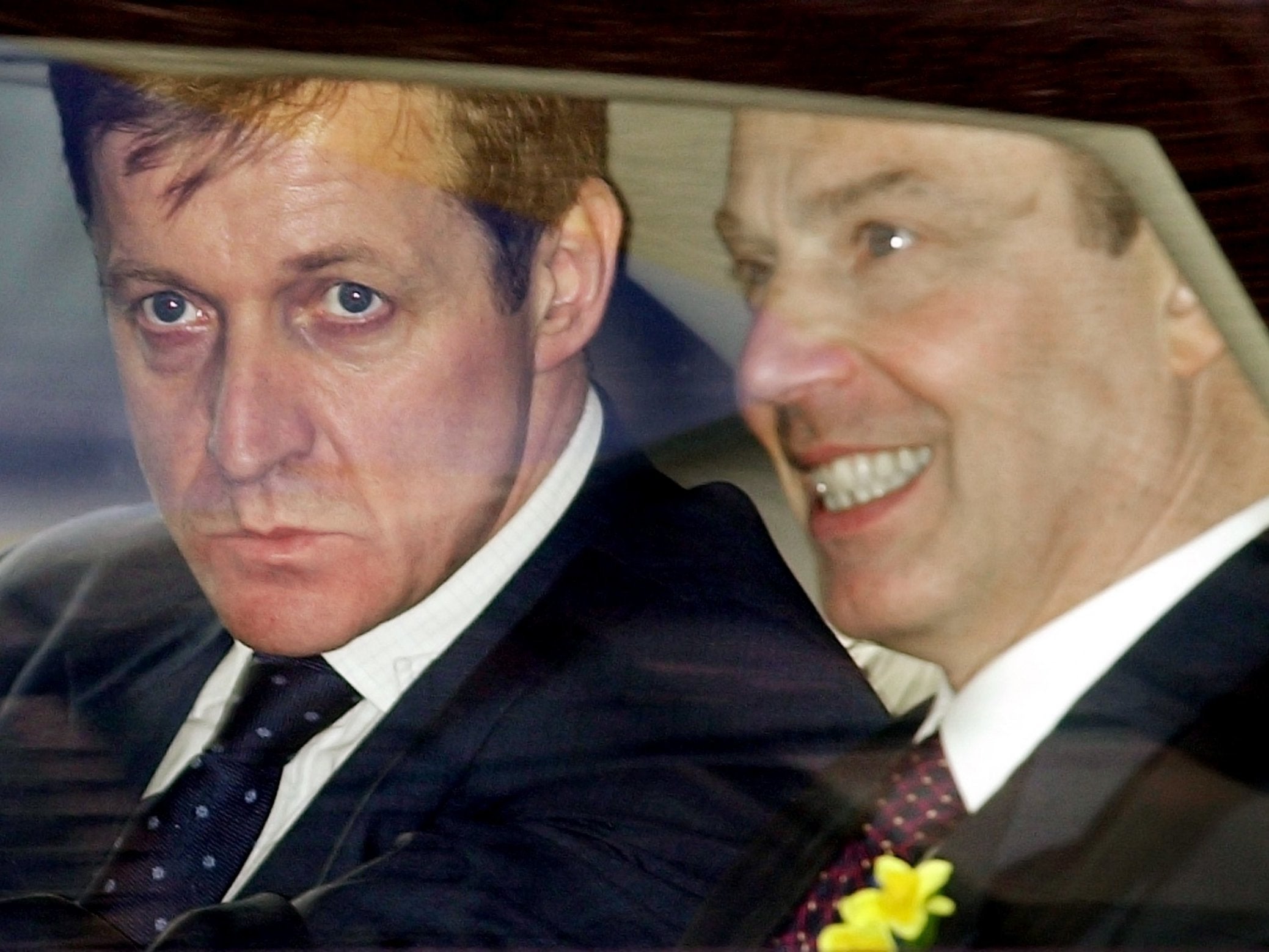National Archive secrets: whatever happened to the 30-year rule?
The latest release of secret papers spans more than one decade, as John Rentoul explains


There is nothing new in politics. Twenty years ago, Tony Blair was demanding “radical measures” to deter asylum seekers, and considering options such as detention camps on Scottish islands or the Falklands, processing centres abroad (including in Africa), and repudiating the European Convention on Human Rights.
Of course, there are two big differences today. One is that Blair didn’t go ahead with any of these, whereas the current government got as far as putting people on a plane intended for Rwanda before the courts intervened. The other is that the Rwanda plan is not to allow for the offshore processing of claims for asylum in the UK, but for the processing by Rwanda of claims for asylum in Rwanda.
Other controversies still echo today. “The Marbles could be a powerful bargaining chip in IOC vote-building for a 2012 Olympic bid,” Sarah Hunter, a special adviser, wrote to Blair in April 2003. She explained an ingenious compromise by which the British Museum would lend the Parthenon Sculptures, also known as the Elgin Marbles, to Greece. Twenty years later, the loan scheme is still being discussed, but in the meantime, London won the Olympics, presumably with the help of Greece’s vote.
What happened to the 30-year rule?
The long-standing convention that cabinet papers are held for 30 years before being published (apart from a few especially sensitive documents) was changed by Gordon Brown. When he was prime minister, he appointed Paul Dacre, the editor of the Daily Mail, to review the 30-year rule. Dacre suggested the rule should be reduced to 15 years; Brown settled on 20 years.
The reduction was achieved gradually, by publishing two years’ worth of papers together, but the original timetable of cutting the period to 20 years by 2023 has been achieved, with the publication now of the papers from 2003.
At the same time, the National Archive has worked miracles by digitising many of the records and making them available online, so a trip to the bricks-and-mortar archive at Kew is now often unnecessary.
Why have some Thatcher papers been released?
You may have noticed some stories in the media about Margaret Thatcher’s attempts between 1979 and 1983 to suppress books by and about spies. These are from 15 files of more sensitive documents that have been held back for 40 years, which were published alongside the 56 files from the Blair government.
Given how unsuccessful Thatcher’s efforts were, the 40-year secrecy policy seems excessive, and there seems to be little of importance in the documents that wasn’t already well known.
In addition, there were some reports earlier this week about Blair wanting Wimbledon FC to move to Belfast as a way of boosting the Northern Irish economy. In the end, the club went to Milton Keynes as MK Dons. This came from papers released by the Northern Ireland Office, which has a different date for the publication of end-of-year documents.
What else do the cabinet papers show?
Other stories that have been picked up by the media from the 2003 Blair papers include Jeremy Heywood, the civil servant linchpin of No 10, telling the prime minister, after Alastair Campbell had announced his departure, that Labour’s press operation had “lost all credibility”. This was obvious at the time, but it is interesting to see Heywood, who died in 2018, saying it.
Similarly, the actual text of Blair’s earlier letter to Gavyn Davies, the BBC chair, on the eve of the Iraq war, complaining about BBC bias, is new, although Blair’s view was well known at the time.
Other headlines generated include: “Blair resisted calls for public inquiry after Soham murders”; “John Prescott complained about not having a proper job in Blair’s government”; “Blair was advised to work with militants in Kosovo”; “Blair ignored warnings from senior colleagues about ID card scheme”; and “Blair lobbied Berlusconi on behalf of British American Tobacco despite ministerial warning.”
There must be more...
One of the joys of official papers, and even of the photographs of them on the National Archive website, is the insights into the workings of a prime minister’s office. There are Post-it notes with comments in red biro, tea- and coffee-mug marks, and papers held together with sellotape.
The original of William Hague’s letter of 29 January 2001 asking Blair to authorise pre-election meetings between opposition spokespeople and senior civil servants, for example, has yellowing tape across it. Blair replied “I am content for this process to start now” on 12 February. The election, originally intended to be held on 3 May, was delayed by foot-and-mouth disease to 7 June.






Join our commenting forum
Join thought-provoking conversations, follow other Independent readers and see their replies
Comments